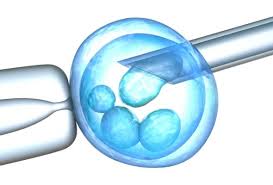Should I Consider Egg Freezing?
Fact: women are most fertile in their younger years. That's also the time women are finishing their education and starting careers; in many cases, they also delay marriage or may not have a partner. Those are reasons to consider egg freezing. Egg freezing may also be a consideration if a woman is diagnosed with cancer. If you're considering egg freezing, here's what New York Reproductive Wellness thinks you should know.
Egg Freezing: Younger is Better
Although people often speak of the biological clock when discussing women's fertility, it's really more of a biological curve. Shortly after puberty, a woman's fertility gradually begins to increase to a peak in the early to mid-twenties, after which fertility gradually starts to drop. For many women, however, hormone levels and menstrual cycles remain regular until about age 38.
Egg Freezing: Quality and Quantity

How Egg Freezing Works
Doctors use the same process to collect the eggs as they do for in vitro fertilization. You'll be given medication to increase the chances that multiple eggs will be released at the same time. A needle is placed through the vagina using ultrasound guidance after the administration of intravenous sedation. The eggs are withdrawn through the needle and immediately frozen. The human egg is the largest cell in the body and contains considerable water. It is carefully dehydrated and replaced with an “anti-freeze” solution to prevent ice crystals that destroy the cell.
Egg Freezing: Storage and Use
The eggs are typically frozen and stored at a temperature of -196 degrees Celsius, or -321 Fahrenheit. Pregnancies have been achieved with eggs that were 10 years old, although this is another case where younger eggs have an advantage. In most cases, you should plan to store 10 eggs for each planned pregnancy, as about seven of the 10 will survive the thaw, and five or six will be able to fertilize and become embryos.
Egg Freezing: The Pregnancy
As with the rest of this process, younger is better. However, successful pregnancies have been achieved in women over the age of 40. As far as the pregnancy itself is concerned, once the eggs have been fertilized and implanted in the uterus, the pregnancy should proceed just like a pregnancy in which conception occurred through intercourse. There is no evidence that egg freezing increases the rate of pregnancy complications or birth defects. Egg freezing may meet your fertility needs. If you're considering egg freezing, contact New York Reproductive Wellness. We'll have answers to any questions and can schedule an evaluation.







